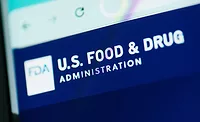Both Sides Now: Views Differ on Zilmax Controversy
Merck Animal Health this month suspended U.S. and Canadian sales of its beta-agonist Zilmax, after Tyson Foods announced on August 7 that it would stop buying cattle treated with the drug, due to animal health concerns. Tyson is the nation's largest meat processor; third-largest meat producer Cargill Inc. followed suit on August 26. Cattle Buyers Weekly reported on August 26 that two other major packers, JBS and National Beef, will soon join the bandwagon.
Feedlot operators, who have long been adding Zilmax to feed to help cattle gain weight shortly before slaughter, are concerned and dismayed by the move, but some consumer advocates hope it is the start of a trend.
An August 18 article from Reuters explained:
After nearly a decade of relying on weight-gain feed additives as a lifeline to survival, some of the 75,000 U.S. cattle feedyards that dot rural America in places such as Texas and the Great Plains, suddenly must do without the leading product Zilmax - nicknamed "Vitamin Z."
Merck & Co's announcement on Friday that it was suspending the sale of Zilmax in the United States and Canada surprised many cattle owners and feedlot operators, who say Zilmax and other beta-agonists have been a godsend for a struggling U.S. beef industry that saw overall domestic consumption fall more than 8 percent between 2002 and 2011.
"Sometimes it's the difference from breakeven, or even loss, and profit," said Jhones Sarturi, an assistant professor of beef cattle nutrition at Texas Tech University.
The feedyard business may seem simple to outsiders - roughly double the weight of young cattle to around 1,300 pounds with a few months of feeding, then send them to slaughter - but its economics have become brutal, and the number of feedlots has shrunk by one-fifth over the last decade.
Soaring feed costs in the wake of the worst U.S. drought since the Dust Bowl and fierce demand for light corn supplies by ethanol makers resulted in cattle ranchers thinning herds. That led to too few animals to fatten up and too many feedlot operators and packing houses scrambling to get them. Adding to the industry's woes, U.S. retailers are reluctant to raise prices in fear of alienating recession-weary U.S. consumers, who are willing to shift to less expensive proteins such as chicken and ground beef.
Looking for quick answers on food safety topics?
Try Ask FSM, our new smart AI search tool.
Ask FSM →
But with the help of Zilmax, and its rival livestock drug Optaflexx, made by Eli Lilly & Co's Elanco Animal Health Unit, many feedyards say they have found a way to reduce some of the economic pain. Mixed into feed in the weeks before slaughter, beta-agonists can add as much as 30 pounds of saleable meat to a carcass.
A somewhat different perspective was offered by Tom Philpott in an August 28 article in Mother Jones, entitled "Your Steak Is Addicted to Drugs":
Is the US beef industry turning away from the practice of turning to drugs to fatten its cattle?
Not so fast. Rather than wean themselves from growth promoters, the companies that produce cows to supply the likes of Tyson and JBS are instead shifting rapidly to a rival beta-agonist, this one from pharma giant Eli Lilly, called Optaflexx. The suspension of Zilmax sales has caused such a "surge in demand" for rival Optaflexx that "Lilly is telling some new customers it cannot immediately supply them," Reuters reported.
At the end of the day... well, "the end of the day" hasn't come yet. The jury is still out, and their debate may be continuing for some time.








